In an effort to combat creative burnout, Adrienne, Urbanwire’s Social Media Head, and I, the lead designer, attended the first joint Peer Helper symposium at Ngee Ann Polytechnic (NP). Despite us now having had three years of experience in creating visual content, the constant pressure to churn out ideas has often resulted in us facing creative block and frustration. Could making art, a practice often associated with struggle, truly be therapeutic?
The symposium, a collaboration between various student support groups at NP, offered a diverse range of activities designed to explore the potential of art therapy. Participants engaged in art therapy activities and attended workshops curated by Safe Sphere and Zenergy, two final-year projects by Year 3 Community Development students.
This exploration of art therapy challenged our initial scepticism. With its engaging activities and informative sessions, the symposium provided valuable insight into how creative expression can be a tool for managing stress and promoting well-being, even for the less artistically inclined.
Here are some of our favourite highlights from the event!
Art therapy is for everyone
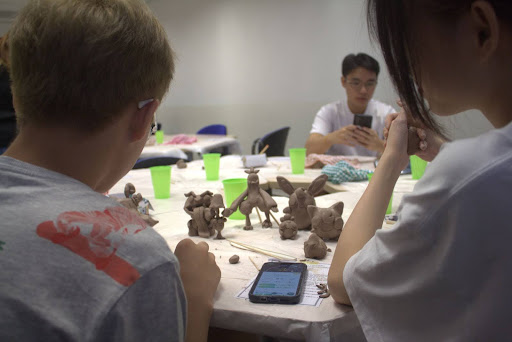
With the theme of this year’s symposium being Artful Connections, a range of activities and workshops were offered, from clay-making supported by the non-profit organisation, Limitless, to rock decorating.
The event highlighted not only the therapeutic benefits of art, but also its accessibility – anyone could participate and experience its positive effects through these hands-on activities.
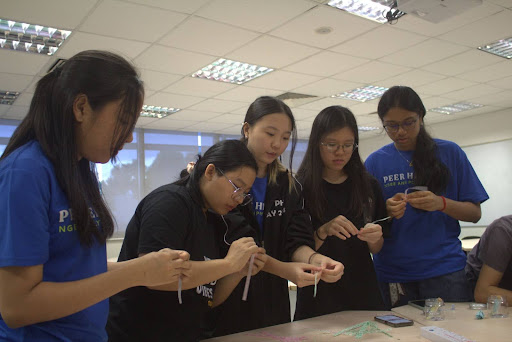
Workshops created by Year 3 Community Development students
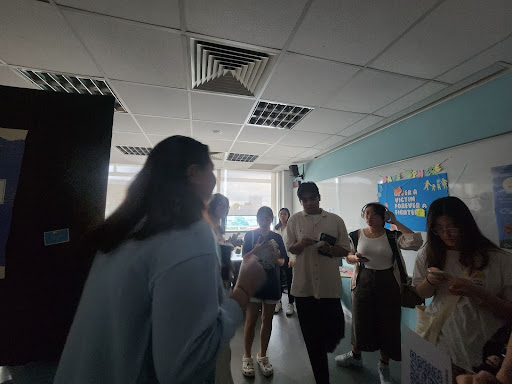
Amidst the various activities, the Safe Sphere and Zenergy teams also curated workshops. These workshops offered students alternative perspectives on self-care, mental health, and how to better support those struggling with personal challenges.
Zenergy focused on self-care through a multi-sensory experience. Participants were invited to play with kinetic sand against a backdrop of beach sounds and scenic visuals, creating a calming and grounding atmosphere. This creative DIY (do-it-yourself) approach served to highlight the importance of mindfulness and relaxation for one’s mental well-being. Additionally, participants received a walkthrough of a personalised journaling app, which provides them with tools to manage their mental health.
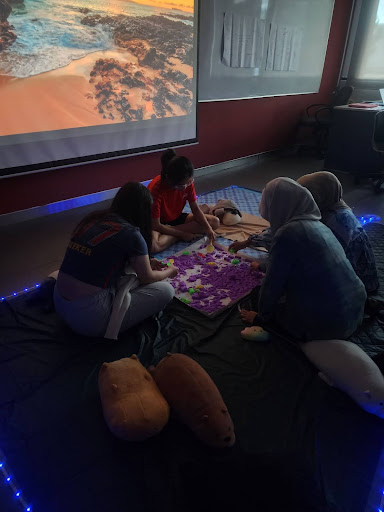
Safe Sphere focuses on tackling the sensitive topic of family violence. The workshop offered an immersive experience designed to raise awareness and create a safe space for victims. Participants gained valuable insights into the perspectives of those who suffer from family violence, learning about the potential side effects and symptoms to look out for.
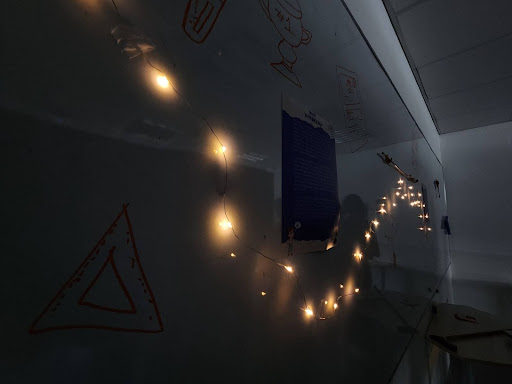
The workshop concluded with a unique card game developed by Safe Sphere. This interactive approach provided a fun and engaging way to learn more about family violence and available help resources.
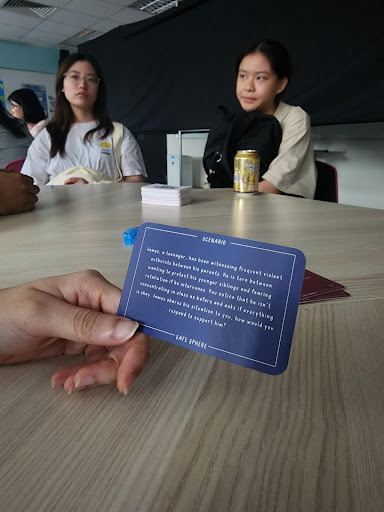
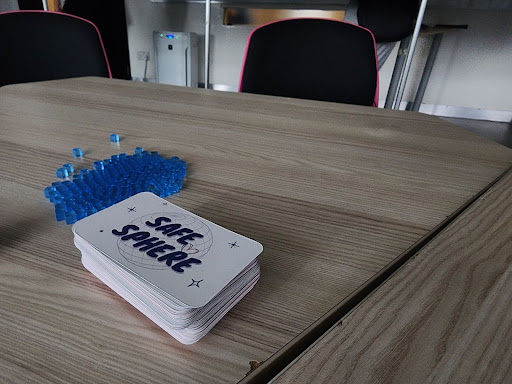
The workshops by the Community Development students provided attendees with valuable knowledge and tools to navigate mental health and social issues with. Their creative approaches offered effective ways to promote self-care, awareness, and support within the community.
A Heartfelt Conversation: Panel discussions and Q&As
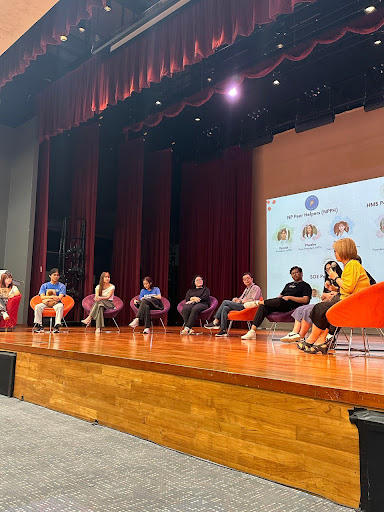
The event also featured an insightful panel discussion with Peer Helpers, offering their perspectives on mental health support in academic settings. The panel included the heads and advisors from the various Ngee Ann Polytechnic’s Peer Helper CCAs across the campus (School of Business & Accountancy, School of Engineering, School of Humanities & Social Sciences, School of Design).
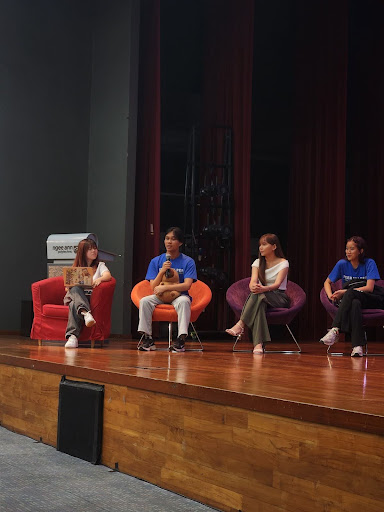
These advisors, who double up as para-counsellors, and student leaders passionately shared anecdotes and experiences they’ve encountered while heading and advising their respective Peer Helper CCAs.
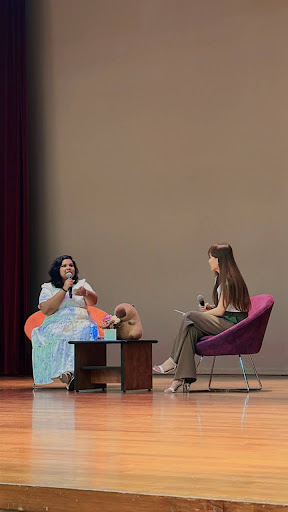
The symposium concluded with a presentation by art therapist Ms Buvenasvari Pragasam of Solace Art Therapy. Ms Pragasam’s presentation offered a glimpse into the world of art therapy, showcasing its potential to help individuals gain self-awareness. Through insights into vulnerable cases she has handled, she demonstrated the power of art therapy as a tool for mental health support.
Through all the exciting activities and insightful presentations and discussions, we both left the symposium with little doubt in our minds: that art can, in fact, be used as a tool for self-care and promoting well-being, by anyone and everyone.
Watch the video to see more of the highlights of Artful Connections!
@theurbanwire How does creative expression become a tool for managing stress? Join The UrbanWire team as we explore art therapy in a joint symposium held by Peer Helpers across Ngee Ann Polytechnic. Read the full story to find out the highlights of Artful Connections! 🖌️ #theurbanwire #peerhelpers#artfulconnections #arttherapy #ngeeannpoly #singapore #fypsingapore
♬ original sound – theurbanwire – theurbanwire
